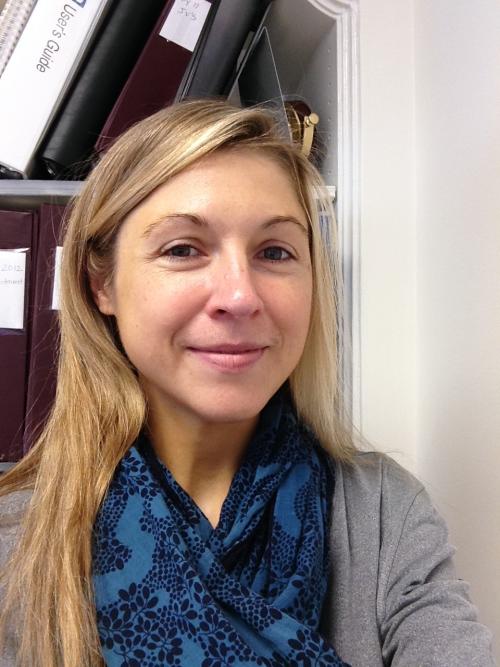
Blog
Alumni Profiles Series: Dharol Stevens (Part 1)

Dr. Dharol Tankersley Stevens received her Ph.D. in Philosophy and Cognitive Neuroscience from Duke University in 2008. Her dissertation is titled, The Neurobiological Foundations of Altruism. As a current resident of Denver, Colorado, she works as a Business Analyst for Enerpact LLC, a company based in Houston, Texas. Dr. Stevens also has a Bachelor of Arts from Emory University in Philosophy and Psychology.
What professional or career plans did you have in mind as you were completing your degree?
Initially I intended to pursue a tenure-track professorship in Philosophy. As I progressed through school I decided to pursue a research faculty position in Neuroscience.
What has your career path looked like since you graduated?
I completed a one-year postdoc in Neuropsychiatry at University of California, San Diego, and a two-year postdoc in Neuropsychiatry at Baylor College of Medicine in Houston, Texas.
The recession hit while I was a postdoc and the job market became very tough for research scientists. Instead of writing the grant that would propel me to professorship, I began assessing my prospects in academia: there were hiring freezes in universities, a bottleneck of over-qualified postdocs fighting for the diminishing number of research jobs, and an 80% chance that any grant I submitted would be rejected. Recognizing my grim prospects in academia, for the first time I started thinking about other paths. I was 30 years old, with no clue what to do.
I had published in neuroeconomics, a field related to marketing and consumer decision making. So I began looking for entry-level positions in marketing. I submitted job applications on the web, contacted alumni and attended professional networking events for months. I did not receive a single call for an interview. I cold-called a couple of hiring managers and executives of marketing firms for advice. Almost all of them told me the same thing – people do not want to hire Ph.D.s with no industry experience, because they assume these candidates will require higher pay and be unable to make the real-time decisions required in the business world.
I put my academic credentials at the bottom of my resume, and finally, gratefully, took my first job in industry making $10 an hour without benefits. The CEO of the company told me that he had a policy against interviewing Ph.D.s, but he also had a policy of interviewing every candidate who was referred. I was referred by a man I had talked to for 20 minutes at a networking event. I would be spending 30% of my pre-tax wages on my cobra health insurance premium, with no job security, and instead of managing a slew of research assistants I would be managed by a man who had graduated college two years ago. But my foot was in the door.
My $10 an hour internship at Schipul Technologies Inc. turned into a full-time position (salaried with benefits) as a Data Analyst a few months later, and a year after that I took a better-paying job with more elite clients as a Web Analyst at Lopez Negrete Communications, an advertising firm. I am currently a Business Analyst at Enerpact LLC, a software company in the Energy industry.
In short, I spent the first few years after graduation following the beaten postdoc path, took a risk and spent a couple of years in entry-level positions in industry, and finally arrived in a job that I enjoy and made the risk worth it.
What has been the most surprising thing about your job?
In my experience the day-to-day life in an industry job is significantly less stressful than the world of academic research. In academia my colleagues and I often mused happily about the flexibility afforded by the academic lifestyle, but when you’re working 60 hours a week, there really aren’t that many flex hours. In a couple companies I have worked for, the lights in the building shut off at 7pm.
What’s the best career advice you’ve ever received?
My husband was incredibly supportive. I had moments of doubt, humiliation, and fear of inadequacy while switching careers. He told me that sometimes you feel like you’re in over your head, because it’s a new environment and a new set of skills. But even if you are in over your head right now, people who work hard don’t get fired. People from academia have misconceptions that [in industry] employees get fired all the time. I have worked for three private companies and observed various client companies, and most people do not get fired, and when they do, it is not for incompetence; it’s because they do not work hard and have a bad attitude.
My husband also told me that even if you take a risk and find yourself in a position that seems “beneath” you or who you thought you were (accepting a $10/hour internship when you are in your 30s and have a Ph.D.), that you will not be at the bottom long. People who work hard rise really fast.
Interested in reading more? Click here for Alumni Profiles Series: Dharol Stevens (Part 2)!
Author

Anna Kivlan, Ph.D.
Recent Ph.D. Graduate